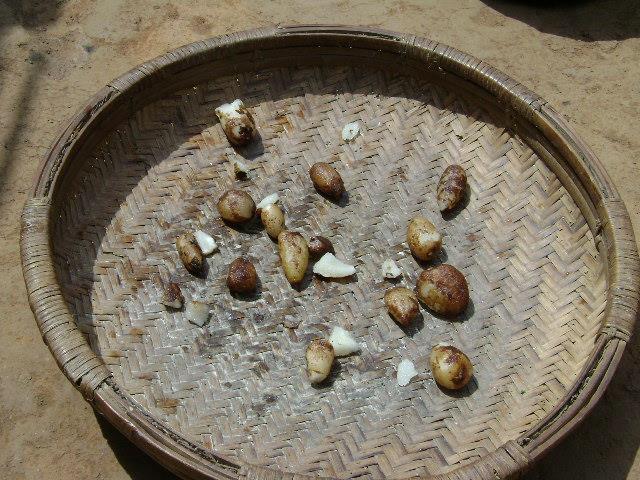William Chrispo Hamisy
Other projects
28 Oct 2015
Development of Conservation Strategies for the Wild Edible Orchids in Tanzania
This project will generate necessary information to facilitate orchid conservation in Tanzania.

Orchid tubers in a winnower.
Orchids are among the most significant ornamental plants in the world. The plants are known for the beautiful colour and shape of their flowers; hence they form a unique genetic resource of economic importance in the global horticultural industry.
In the southern Africa region (Tanzania, Zambia and Malawi), the tubers of the orchids have for a long time been used as a source of food. The tubers are traded locally within the three countries, where they are used in the preparation of a meatless source. This business is being carried out in an unsustainable manner as a result threatening the future of the species and their associated biological diversity in the natural habitats. During in situ survey, in Makete, the orchids were observed to be at a very high threat of disappearance due to high rate of exploitation.
Harvesting of the orchid in the area was associated with forest burning as a result threatening not only the orchids but also other living organisms found in the area. Lack of data on distribution, status and propagation methods has contributed to un availability of effective conservation measures for the orchids in the area. As a result, this project will generate necessary information to facilitate orchid conservation in Tanzania. The main objective of the project is to promote conservation of the edible orchid in Tanzania through integration of in situ, ex situ strategies and promote local communities participation in orchid conservation.